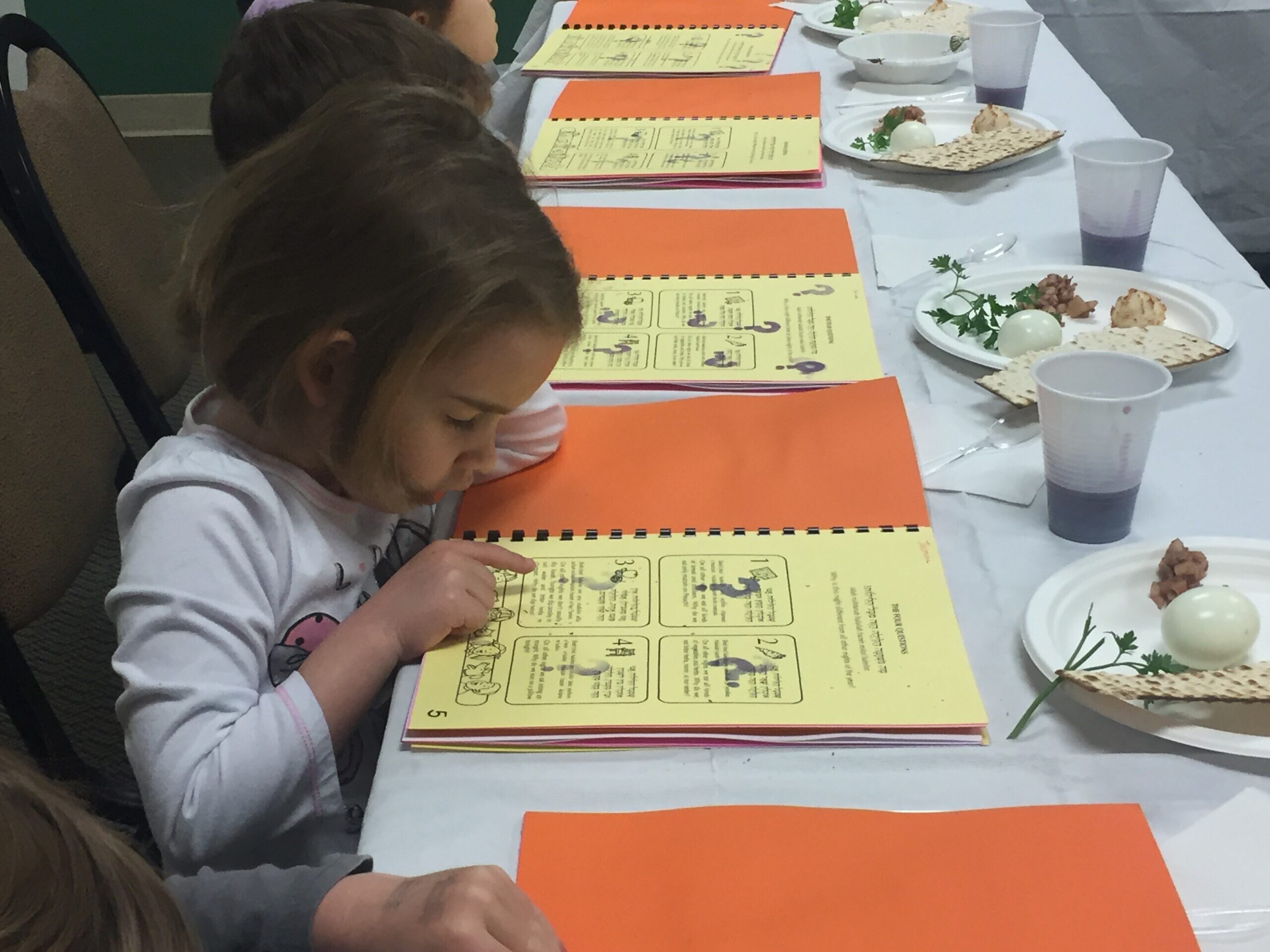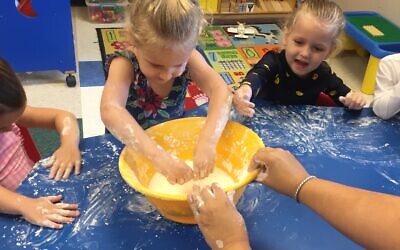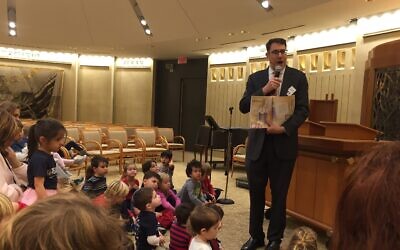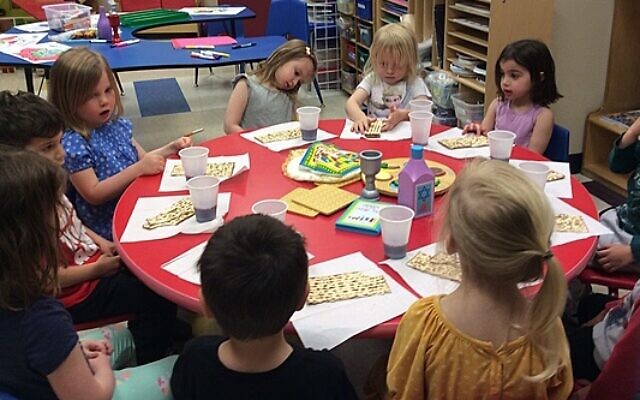Passover Stories, Rituals Help Children Learn
The Weinberg Early Learning Center offers tips for children to learn through experience.
These are challenging times. Schools are closing and students are transitioning to virtual learning from home. While e-learning might be seamless with older kids, it is certainly not optimal for our young ones. There are opportunities to make learning fun and engaging for our toddlers and preschoolers, though.
Experience is the best teacher. Jewish educators often use storytelling to guide young students through multiple emotional and sensory experiences. This month, we welcome a terrific occasion to teach children about a multitude of subjects all within a Jewish context – the holiday of Passover.
Passover provides one of our favorite learning times at the Weinberg Early Learning Center. Families and communities come together to retell the story of our journey from slavery to freedom. Passover is also a holiday of accounts that involve everything from hardliners to heroes, amphibians to insects, and emotional highs and lows. There are many opportunities for kids to learn in meaningful ways.
Connecting Education with Jewish Values
Focusing on the experiential “learning through reflection on doing” is a wonderful way to connect education with Jewish values. The Passover holiday traditions of the seder, including food preparation, storytelling, singing and games, all become part of a greater learning experience for young children both in the classroom and at home.

Engaging Young Children
Be cognizant of opportunities to teach your children not just verbally, but through their five senses. The seder plate is a cornucopia of edible samples, smells and surfaces. Parents and educators can employ the traditions of Passover to demonstrate academic concepts such as counting. Passover stories become an opening to understand emotions and teach and show empathy.
This year, while celebrating Passover with preschoolers, introduce experiential learning by …
• Discussing taste: Young children learn the meanings of words such as “sweet” and “bitter” by tasting the honeyed apples in the charoset and the harsh flavor of the maror.
• Distinguishing different textures through touching. Tangibility is at the core of learning for your preschoolers. Have your child feel the smoothness of the hard boiled egg, the wetness of parsley dipped in salt water. This is also an excellent time for children to associate positive feelings with reading as they sit among their family and friends with a haggadah in hand.
• Counting through reciting the 10 plagues or the traditional Passover counting song “Who Knows One?” We dip our finger in our wine (or grape juice) and drop bits of liquid on our plates for each plague. This is not only a Jewish tradition, but a fun counting exercise with little ones.

• Discussing the meaning of symbols with the food on the seder plate. It is full of meaningful objects. Each edible piece represents a story, an emotion or a material from biblical time. Discuss how the egg represents the “circle of life” and have your child feel its round shape. Talk about how the karpas represents spring and point to its color and leaves.
• Developing social and emotional understanding through empathy for the plight of Jews escaping Egypt. Empathy is at the core of social-emotional learning that has become prevalent in school curriculums. Empathy is also central to our Jewish value of tikkun olam (saving the world).
A Seat at The Table
The lessons and experiential learning opportunities of Passover extend across culture, history, religion and academics for our young students. They also extend beyond the classroom.

Have your children play roles in the storytelling, draw or create representations of religious figures and events, join or lead songs, and share their classroom lessons about the symbols and significance of Passover with your family. ì
To learn more about WELC educational programs, contact Sarah Shinsky, sshinsky@the-temple.org or Audrey Henderson, ahenderson@the-temple.org, at 404-872-8668.
Sarah Shinsky is the director of the Weinberg Early Learning Center in Midtown. WELC provides a rich and joyous learning environment for young children ages 3 months to 4 years that stimulates their minds, nurtures their souls and embraces the wonder and beauty of their Jewish heritage.




comments